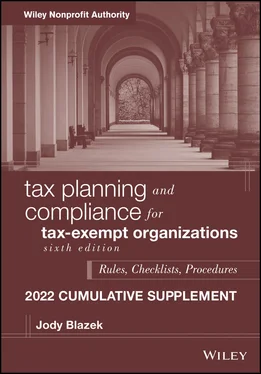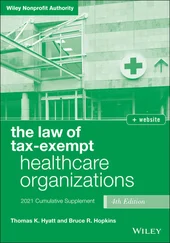Charitable Contributions.To incentivize additional charitable contributions to those organizations supporting and aiding those most affected by the virus, enhanced donation limitations were included:
Up to $300 of charitable cash contributions can be taken as a deduction against adjusted gross income (AGI), regardless of whether or not the individual itemizes.
For 2020, the 50 percent AGI limitation was eliminated, and individuals got a charitable contribution deduction for up to 100 percent of a person's AGI, for cash (not appreciated property) contributions.
Small Businesses.Small businesses have been some of the hardest hit as a result of the coronavirus pandemic. The CARES Act introduced many provisions to assist these small businesses, including:
Employers receive a credit for their portion of the payroll tax (7.65 percent) up to $10,000 of wages per employee if the business has been impacted by COVID-19 or if revenue is 50 percent lower than the same quarter in 2019.
Payment of the 2020 payroll tax can be delayed, with 50 percent of the payroll tax due paid in 2021 and 50 percent in 2022.
Economic Injury Disaster Loans (EIDLs) are business loans for up to $2 million at an annual interest rate of 3.75 percent, with the first payment not due for one full year. If you apply for an EIDL, you can also apply for a $10,000 grant toward working capital. These loans can be used to pay and retain employees, make lease payments, pay operating costs, and so forth.
Small business owners may qualify for tax-free loan forgiveness for the portion of the loan between March 1 and June 30. It could be forgiven if the funds are used to maintain payroll.
The Act suspends all rules that relate to the net operating losses (NOL) created under the 2017 Tax Cuts and Jobs Act (TCJA). Under the TCJA, NOLs were limited to 80 percent of taxable income and could not be carried back. NOLs can now be carried back up to five tax years with no income limit.
Loss limitations that were imposed under the TCJA have been suspended: $250,000 for single and $500,000 for joint filings. These losses can offset nonbusiness income.
Business interest deductibility has been increased from 30 percent of adjusted taxable income to 50 percent.
On its website, the IRS posted frequently asked questions (FAQs) on the effect of COVID-19 on liens, levies, and other IRS collection activities.
The IRS joined the Treasure Department's efforts to ease suffering with its People First Initiative. The initiative provided significant delays in tax payment due dates and IRS examination and taxpayer settlement work as described below:
IRS unveils new People First Initiative; COVID-19 effort temporarily adjusts, suspends key compliance program
On March 25, 2020, the IRS wrote, “To help people facing the challenges of COVID-19 issues, the Internal Revenue Service announced today a sweeping series of steps to assist taxpayers by providing relief on a variety of issues ranging from easing payment guidelines to postponing compliance actions.”
“The IRS is taking extraordinary steps to help the people of our country,” said IRS Commissioner Chuck Rettig. “In addition to extending tax deadlines and working on new legislation, the IRS is pursuing unprecedented actions to ease the burden on people facing tax issues. During this difficult time, we want people working together, focused on their well-being, helping each other and others less fortunate.”
“The new IRS People First Initiative provides immediate relief to help people facing uncertainty over taxes,” Rettig added: “We are temporarily adjusting our processes to help people and businesses during these uncertain times. We are facing this together, and we want to be part of the solution to improve the lives of all people in our country.”
These new changes include issues ranging from postponing certain payments related to Installment Agreements and Offers in Compromise to collection and limiting certain enforcement actions. The IRS will be temporarily modifying the following activities as soon as possible: the projected start date will be April 1, and the effort will initially run through July 15. During this period, to the maximum extent possible, the IRS will avoid in-person contacts. However, the IRS will continue to take steps where necessary to protect all applicable statutes of limitations.
“IRS employees care about our people and our country, and they have a strong desire to help improve this situation,” Rettig said. “These new actions reflect just one of many ways our employees are working hard every day to assist the nation. We care, a lot. IRS employees are actively engaged, and they have always delivered for their communities and our country. The People First Initiative is designed to help people take care of themselves and is a key part of our ongoing response to the coronavirus effort.”
More specifics about the implementation of these provisions will be shared soon. Highlights of the key actions in the IRS People First Initiative include:
Existing Installment Agreements.For taxpayers under an existing Installment Agreement, payments due between April 1 and July 15, 2020, are suspended. Taxpayers who are currently unable to comply with the terms of an Installment Payment Agreement, including a Direct Debit Installment Agreement, may suspend payments during this period if they prefer. Furthermore, the IRS will not default any Installment Agreements during this period. By law, interest will continue to accrue on any unpaid balances.
New Installment Agreements.The IRS reminds people unable to fully pay their federal taxes that they can resolve outstanding liabilities by entering into a monthly payment agreement with the IRS. See IRS.govfor further information.
Offers in Compromise (OICs).The IRS is taking several steps to assist taxpayers in various stages of the OIC process:
Pending OIC applications. The IRS will allow taxpayers until July 15 to provide requested additional information to support a pending OIC. In addition, the IRS will not close any pending OIC request before July 15, 2020, without the taxpayer's consent.
OIC Payments. Taxpayers have the option of suspending all payments on accepted OICs until July 15, 2020, although by law interest will continue to accrue on any unpaid balances.
Delinquent Return Filings. The IRS will not default an OIC for those taxpayers who are delinquent in filing their tax return for tax year 2018. However, taxpayers should file any delinquent 2018 return (and their 2019 return) on or before July 15, 2020.
New OIC Applications. The IRS reminds people facing a liability exceeding their net worth that the OIC process is designed to resolve outstanding tax liabilities by providing a “Fresh Start.” Further information is available at IRS.gov.
Nonfilers.The IRS reminds people who have not filed their return for tax years before 2019 that they should file their delinquent returns. More than 1 million households that haven't filed tax returns during the last three years are actually owed refunds; they still have time to claim these refunds. Many should consider contacting a tax professional to consider various available options since the time to receive such refunds is limited by statute. Once delinquent returns have been filed, taxpayers with a tax liability should consider taking the opportunity to resolve any outstanding liabilities by entering into an Installment Agreement or an Offer in Compromise with the IRS to obtain a “Fresh Start.” See IRS.govfor further information.
Field Collection Activities.Liens and levies (including any seizures of a personal residence) initiated by field revenue officers will be suspended during this period. However, field revenue officers will continue to pursue high-income nonfilers and perform other similar activities where warranted.
Читать дальше












